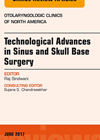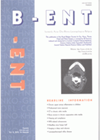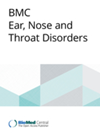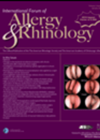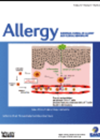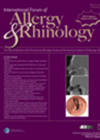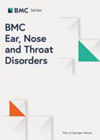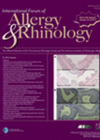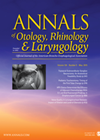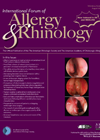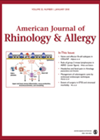
Journal Reviews
A review of topical treatments for chronic rhinosinusitis
Topical nasal treatment is considered the mainstay treatment for chronic rhinosinusitis (CRS). The authors reviewed the effectiveness of saline irrigation, topical corticosteroids, topical antibiotics and topical antifungals in the treatment of CRS. Large volume saline irrigation was found to be...
A new biomarker for chronic rhinosinusitis
This Chinese study looked at the feasibility of periostin (usually found in bone and lung tissue) as a biomarker for chronic rhinosinusitis. They sampled ethmoid mucosa in 12 patients with chronic rhinosinusitis without nasal polyposis (CRSsNP) and 25 patients with...
Comparison of outcomes after septoplasty
For this prospective study, the authors assessed the quality of life (QoL) with the rhinosinusitis SNOT-20 (Sino-Nasal Outcome Test-20) questionnaire and the symptoms on a visual analogue scale (VAS) in all patients undergoing nasal septal surgery. The patients reported the...
Microbiome changes after endoscopic sinus surgery: all is not what it seems
As we keep fighting a losing battle with bacteria and antibiotics, it becomes clear that it is not about killing bacteria, not even diminishing the bacterial load, but rather about shifting the different types of bacteria that colonise and live...
Sinus surgery effects on asthma patients
Chronic rhinosinusitis (CRS) and asthma are related. The authors identified a gap in the literature and designed this study with a relatively large sample size of 86 patients. They included patients with comorbid asthma and CRS with or without polyps...
FESS for recurrent acute rhinosinusitis: at last, some data
As noted in both the EPOS 2012 and in the (more recent) ICARS 2016, there is a paucity of evidence on the effectiveness of surgery for recurrent acute rhinosinusitis (RARS). The authors used a control group of patients with CRSsNP,...
A review of endoscopic sinus surgery outcomes
This review discusses the outcome measures that may be considered in the assessment of patients with chronic rhinosinusitis (CRS) as well as the outcomes of endoscopic sinus surgery (ESS) published so far. The authors also discuss the role of peri-operative...
Measuring is understanding: an unsupervised PROM clustering of CRS patients
It has been clear for quite some years, at least for anyone dealing daily with chronic rhinosinusitis (CRS) patients, that CRS is an ‘umbrella’ diagnosis. There are significant differences between patients, including different demographic data, different endoscopic and radiographic images,...
Update on orbital complication of acute sinusitus
This study aims to illustrate the Graz experience. The study is retrospective, 53 patients with orbital complication of sinusitis were examined / confirmed by a University Hospital from 2000 to 2011. Thirty-seven underwent surgery, seven of which experienced a recurrence....
The effect of cocaine or adrenaline dressing during endoscopic sinus surgery
A randomised controlled study of 37 patients took place that underwent endoscopic sinus surgery for chronic rhinosinusitis and received adrenaline or cocaine-soaked patties. The study showed no difference in the mean surgical field scores between adrenaline and cocaine sides. Adequate...
Comparing patient and surgeon concerns in sinus surgery
This prospective observational study had a total of 180 patients undergoing endoscopic sinus surgery for chronic rhinosinusitis with or without polyposis. Data was analysed using descriptive statistics and analysis of variance. Subjects felt the greatest level of concern regarding potential...
Passive smoking and rhinosinusitis
One would expect that subjects exposed to more passive smoke would have a significantly increased level of rhinosinusitis. This study looked at a reasonable number of sinusitis and control subjects (404 and 165) using hair nicotine as an assessment of...

